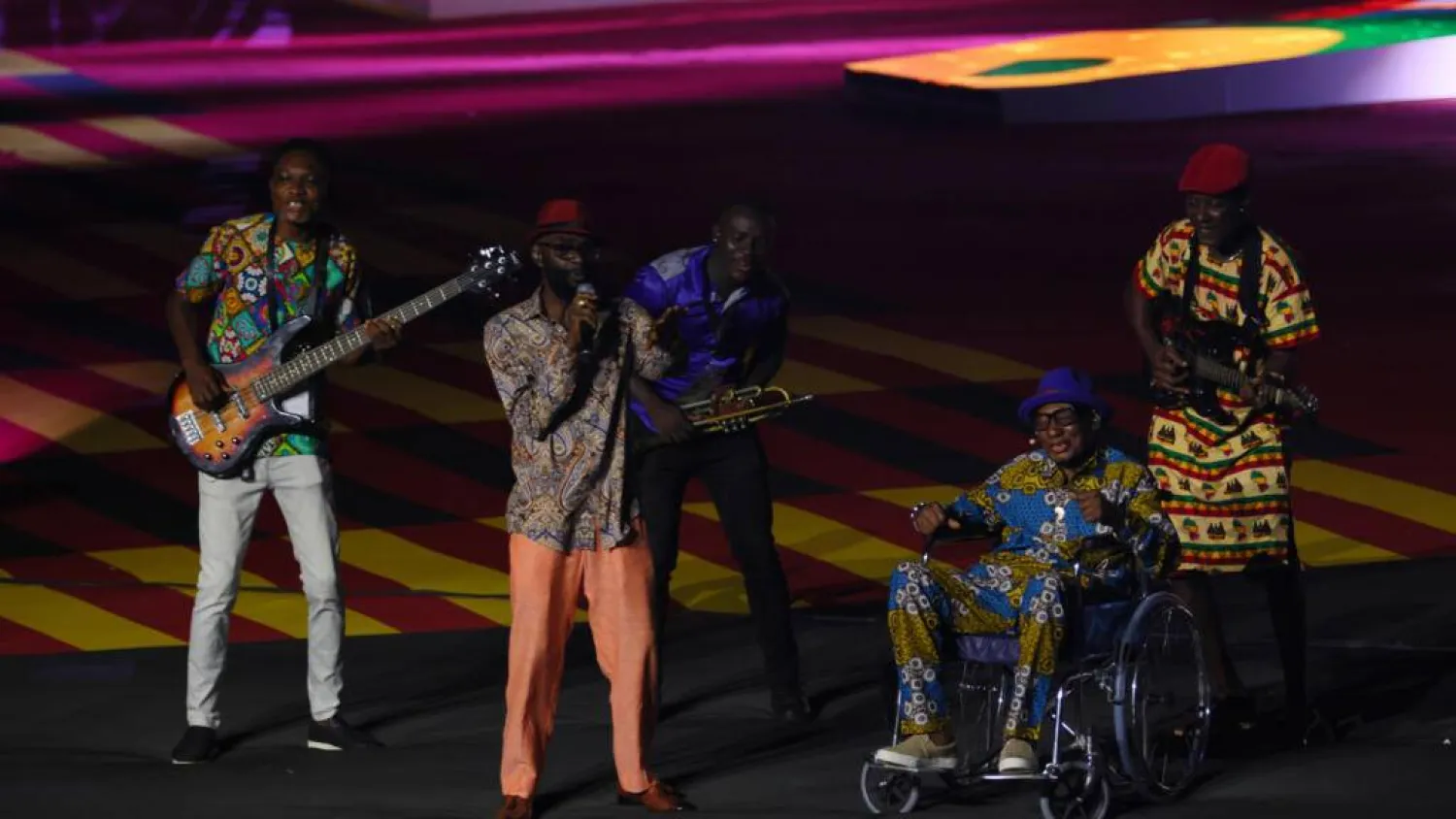Maritta Hallani’s fans were surprised with the ‘look’ she chose for her new music video. Unlike her previous appearances, Hallani looked like a romantic, mature woman who knows what she wants. She even didn’t spare her acting talent, and presented some scenes that reflected a remarkable cinematic performance.
In her new song, ‘Shou ela Maana’ that follows two other recent ones, ‘Ana Bent’ and ‘Law’, Hallani collaborated with emerging composer Ghina Sinno. “I met Ghina when I was visiting the song’s composer and distributor, Jamal Yassine. I listened to the lyrics she wrote and I loved them right away. Ghina and I are from the same generation, I felt she wrote something that resembles me and the girls of my age,” she told Asharq Al-Awsat.
Maritta believes ‘Shou ela Maana’ mirrors reality, and urges independence and freedom, calling young girls not to be afraid of expressing their minds, and never spend their life trying to please others.
Maritta has made a sounding comeback to singing after a period of intermission. “I got lost in acting, and the pandemic also delayed this comeback. Today, I made my decision. This return was necessary because there are people who love me as a singer. The music video of ‘Shou ela Maana’ was new with its elements and my appearance.
“Director Serge Majdalani thought thoroughly before giving me the idea, and because he’s young, he found an opportunity to translate it into vivid ideas to give me an innovative style,” Hallani said.
Today, Maritta has become more comfortable in front of the camera, saying: “My work in acting played a role in that.” She played the role of the mature, independent woman, inspiring this personality and appearance from Italian star Monica Bellucci. “I am happy with this change as an artist, and although opinions were divided over it, most of the comments ended up for my benefit.”
About the criticism that hit the music video, accusing it of boldness, Hallani said: “I think people overreacted because the scenes are familiar. But the change that transformed me from the innocent girl that the audience was used to made the whole difference.”
Indeed, Maritta’s fans love her shyness and innocence, they see her as a big child that would never change. “I don’t like to lose this trait of my personality, and I feel that the child spirit that characterizes me would stay with me. No matter how much I age and grow, childhood will stay with me. It’s not a secret that pink shades and simple, flowery dresses still entice me today,” she added.
Those who know Maritta, know she still has a child in her and in her closet. “One time, my mother was organizing my closet and was surprised with the number of colorful dresses and red hearts in it. She even called my father to make him see it,” the young singer recalled.
Maritta believes that there is nothing wrong with being real. “When people lose small details of their personality, they change completely, they are never the same anymore. Their traits define their identity or they become a replica. I don’t like to imitate, what you see in Maritta resembles me. I don’t have two personalities and I can’t separate my personality as an artist and a regular person. We might get inspired from here and there, our personality could be affected, but this change is never radical,” she said.
Maritta composed the music of her previous song ‘Ana Bent’, which was distributed by Jamal Yassine. “At the time, I was still a college student. I was driving back home when the idea hit me, and I recorded the song in order not to forget it,” she said.
Maritta recently finished shooting a new 30-episode series titled “Bleeding” produced by Gold Films. It’s written by Jad Khoury and directed by Elie Rammouz. “In this work, I play the role of Petra, which is different from the other roles I played. I was afraid in the beginning, but when we started shooting, the bad feelings faded. I lived the role in all its details and pains, and I enjoyed the whole experience,” she said.
“Bleeding” in a Lebanese, Iraqi, and Syrian production starring Ismaeel Tamr, Assaad Rashdan, Khitam el-Leham, and Tatiana Merheb. Maritta performs many songs in the series. “It’s not a musical, but the role I play gave me this chance. It’s an interesting social drama,” she noted.
Change and avoiding repetition are Maritta’s main goal on the screen, which she clearly translated in her role in “Bleeding”.
“I had many offers before this series, but I found nothing new that could bring an added value to my journey. I’m still in my beginnings, and I have time to build a path that meets my aspirations. I consider my choices slowly even if I have to be absent for some time,” she noted. Maritta says she likes the Lebanese screen because a large share of her fans are Lebanese. “I prefer Lebanese works despite the lack of support. Production has dropped due to the economic crisis, but successes are still being made despite everything.”
Hallani is preparing to partake in a local work that will be screened in Ramadan.
Maritta says she doesn’t discuss her work decisions with her parents. “I love to ask them about their opinion, and to share my concerns and ideas with them, but I know what I want and the nature of works that suit me,” she said.
The young artist said she liked the second season of the ‘Salon Zahra’ series, she found it comic and entertaining. About her future works, she revealed that she’s preparing to release new songs in Egyptian and Lebanese accents.









